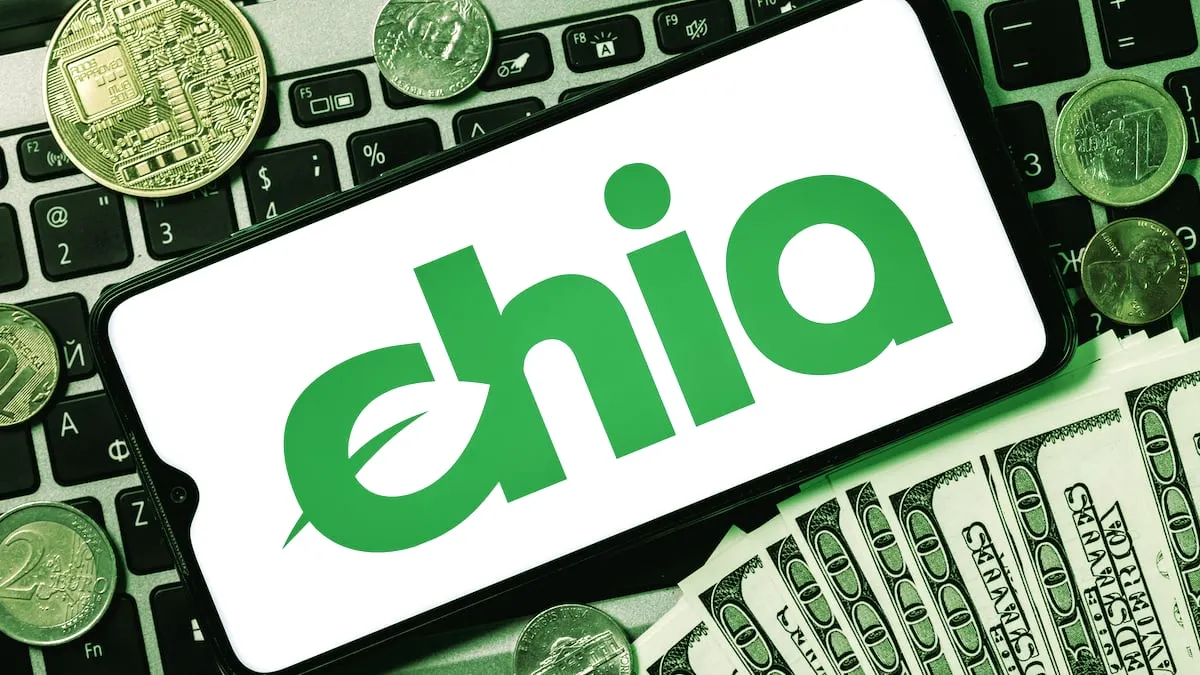In brief
- Proof-of-space cryptocurrency Chia has lost two-thirds of its original launch price following its debut on Monday.
- Chia, which uses a novel "proof of space" consensus mechanism, sparked shortages of hard drives as miners snapped up computer storage.
Gamers can heave a sigh of relief. Home-mining cryptocurrency Chia (XCH)—which sparked a run on the hard drives PC gamers rely on—flopped on its launch earlier this week, losing half its value within six hours. It’s currently trading at a third of its debut price.
XCH launched on Monday with a price of just under $1,600. It briefly climbed to $1,819 but within hours fell to the $700 mark, and has since seen a steady decline to $597, shedding over $1000 of its launch price.
Chia's "proof of space" model
Chia uses a novel "proof of space" consensus mechanism. Instead of the energy-intensive proof-of-work consensus protocol employed by Bitcoin and Ethereum, it uses storage capacity, which has much lower demands on processing performance.
However, that's had unintended consequences. Chia is mined using high-capacity storage devices; miners preparing to transact in the cryptocurrency ahead of its launch sparked concerns about hard drive shortages last month, driving up prices in Southeast Asia.
Computer storage space has become a hot commodity recently, with protocols such as Filecoin and Filebase recently launched to capitalize on unused capacity.
It's not the first time that a cryptocurrency has sparked shortages of computer hardware. A long-running battle between crypto miners and PC gamers over GPUs, which can be used to mine Ethereum, led to a worldwide shortage of graphics cards—and spiraling prices. GPU manufacturer Nvidia subsequently introduced restrictions to prevent miners from using the cards.
Chia’s aim to make home-mining great again may have hit a temporary roadblock, as miners have capitalized on the initial hype to shed their coins—but not everyone is downbeat on the cryptocurrency's prospects. Chia, which was created by BitTorrent founder Bram Cohen, raised some $3 million in a 2018 seed funding round, while two further rounds have raised a further $28 million.

